Pubdate:2024.9.13. 14:14 Author:editorSource:Beijing Normal University
On August 20th (UTC+8), the Student Forum on Smart Learning and Design for Future Education of the 2024 Global Smart Education Conference was held at Changping Campus, Beijing Normal University. The forum invited 14 outstanding college student representatives from China, South Korea, Maldives, Nepal, Iran, Serbia, Croatia, Kazakhstan, and Ghana, as well as experts and scholars in the field of education, design, etc. By the hybrid online and offline approach, the forum focused on core topics including the design of ubiquitous smart learning spaces, the creation of high-quality educational resources, the development of human-computer collaborative learning activities, and the formulation of teaching models with multi-stakeholder participation. Additionally, it explored the application and challenges of Artificial Intelligence Generated Content (AIGC) in teaching and learning processes. The forum aimed to explore how design thinking and digital technologies can collaboratively drive education towards a more intelligent and refined direction.
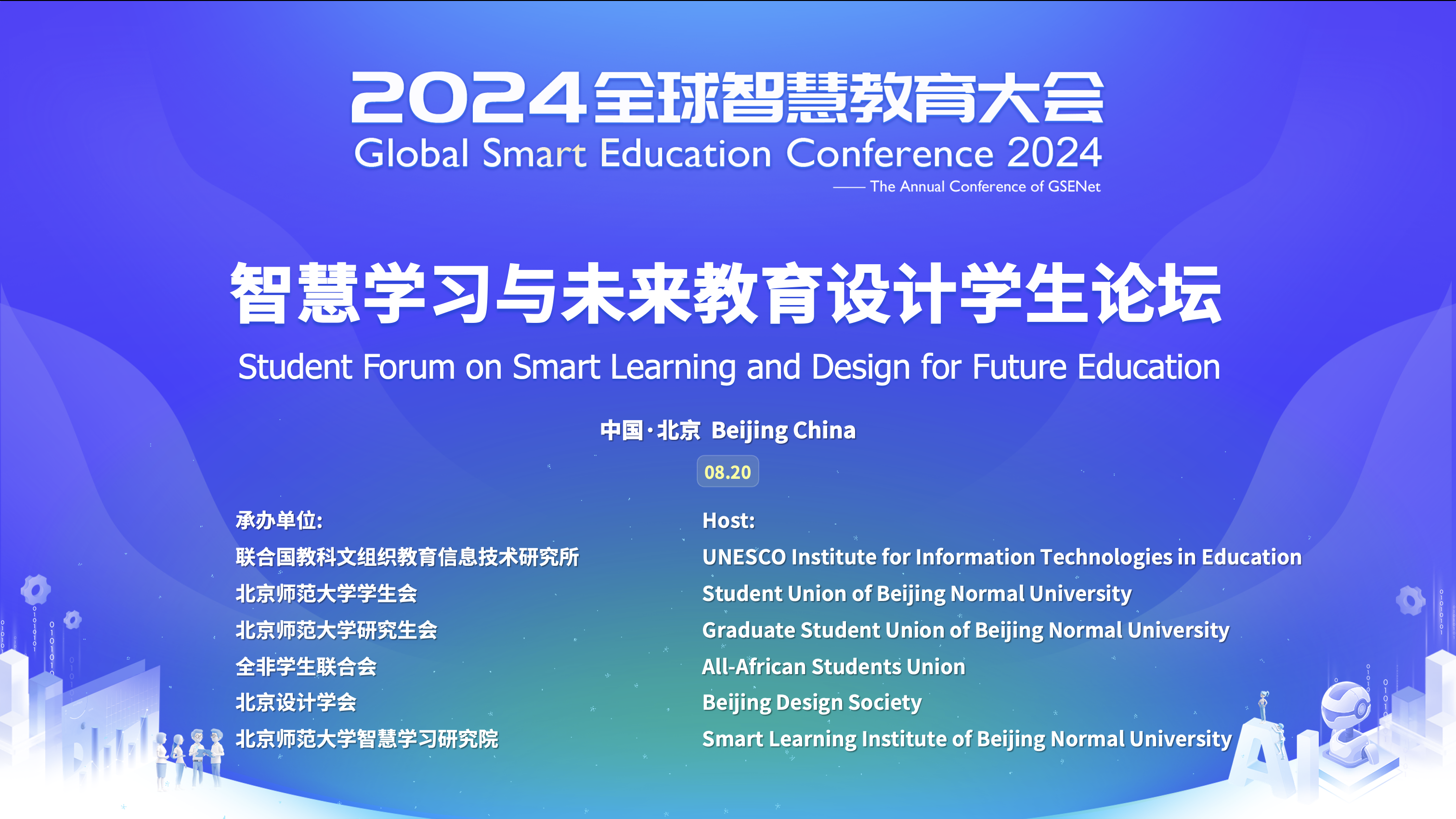
The forum was attended by several distinguished guests, including Mr. SONG Weizu, Founder of Beijing Design Society and Deputy Director of the Central Cultural Committee of the China Democratic League; Ms. Natalia Amelina, Senior National Project Officer in Education at UNESCO Institute for Information Technologies in Education (UNESCO IITE); Prof. CHEN Guangju, Deputy Dean of the Smart Learning Institute of Beijing Normal University; Ms. AN Lili, Deputy Secretary of the Youth League Branch Committee at Beijing Normal University; and Mr. Divine Edem Kwadzodeh, Policy Advisor on Education Policy and Advocacy at the All-African Students Union (AASU). The forum was jointly moderated by Ms. WANG Huanhuan, Dr. Usama Kalim from Beijing Normal University, Mr. BAO Haogang from The China National Academy of Educational Sciences (CNAES), and Mr. Michael Agyemang Adarkwah from Friedrich Schiller University Jena.
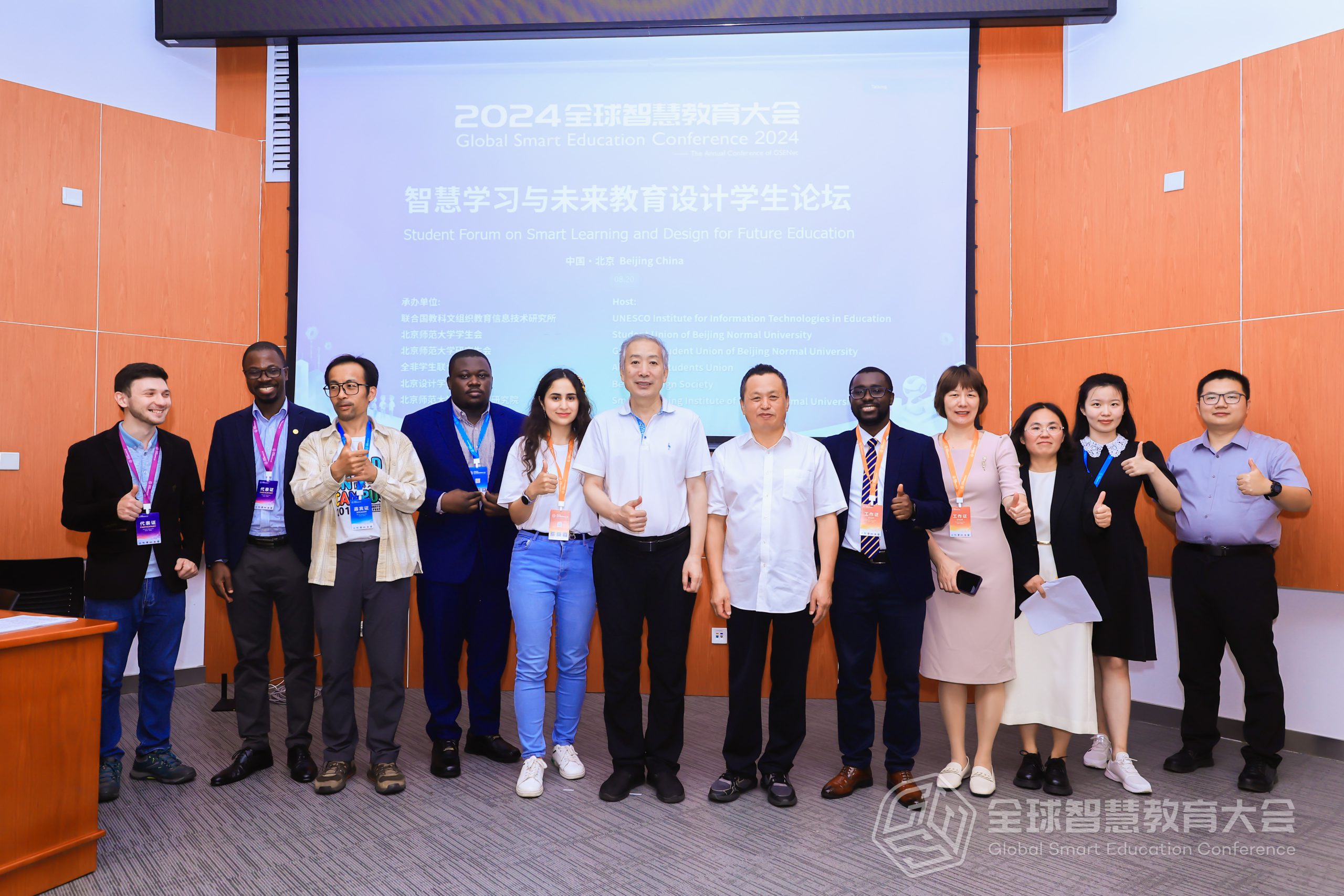
Group Photo
Guests’ Opinions
Mr. SONG Weizu pointed out that design, as a scientific methodology, which integrated human knowledge and innovation, and facilitated development, is the intrinsic driving force for educational transformation. Over the past decade, Beijing Design Society has adhered to the leadership of the Communist Party of China. It has brought together experts and scholars in the field of design from around the world to implement a range of initiatives aimed at fostering balanced educational development, and promoting the deep integration of digital technology, multiculturalism, educational theory, and knowledge systems. He emphasized the necessity for future educational design to prioritize addressing global challenges and constructing a more open and inclusive smart education system.
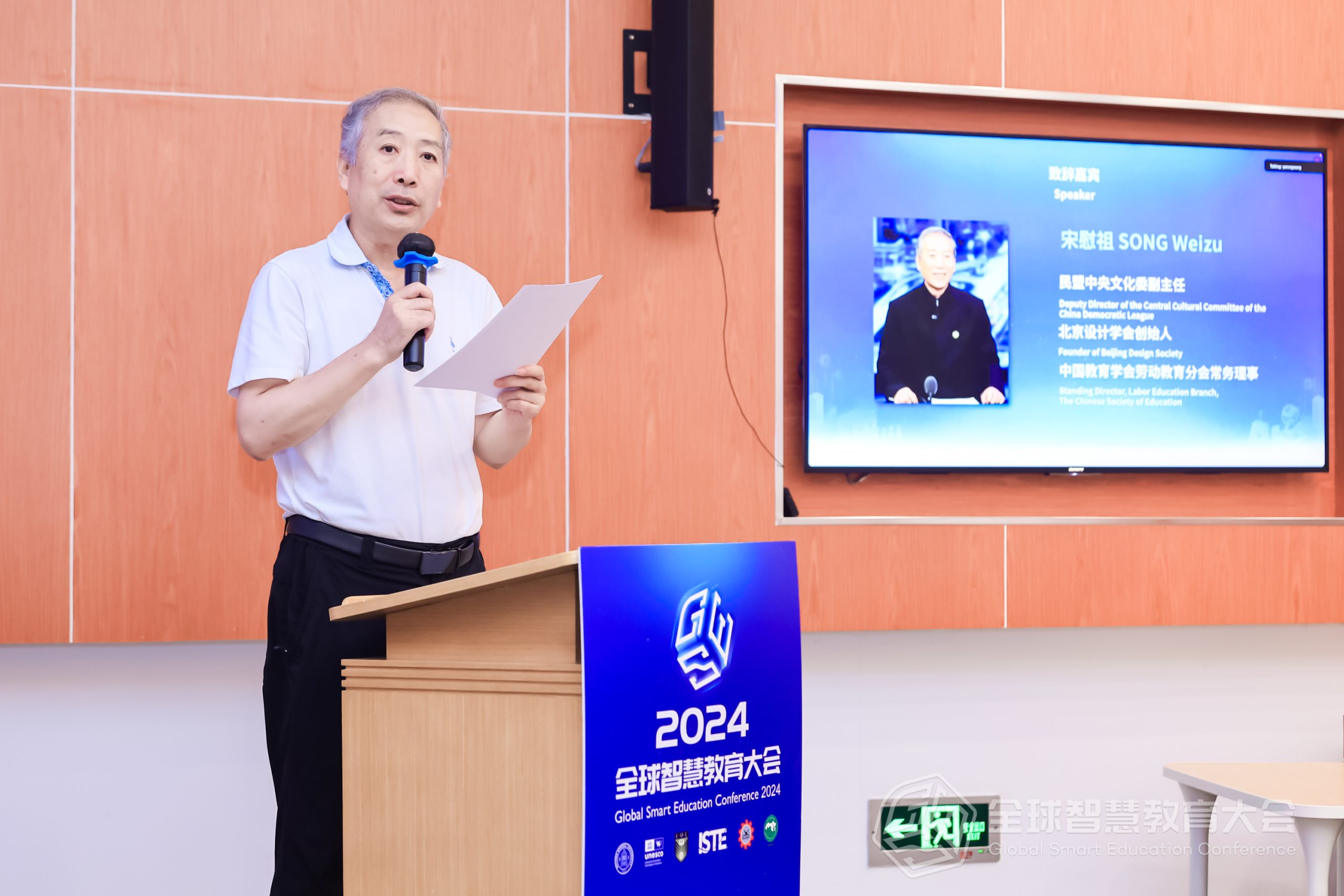 Guest: Mr. SONG Weizu, Founder of Beijing Design Society
Guest: Mr. SONG Weizu, Founder of Beijing Design Society
Ms. Natalia Amelina highlighted that technology is not merely an innovation in teaching methods; it is the key to the comprehensive enhancements to educational concepts, content, and methods. She advocates for the implementation of digital technology to ensure an equitable distribution of educational resources, facilitate innovation in teaching models, and strengthen assessment system reforms. She emphasized the significance of design thinking in educational transformation, advocating for interdisciplinary collaboration in the development of educational solutions that better address student needs. She urged the global education community to jointly explore new pathways for the deep integration of information technology with education, developing a novel educational platform called Education 5.0.
-scaled.jpg)
Guest: Ms. Natalia Amelina, Senior National Project Officer in Education, UNESCO IITE
Ms. AN Lili highlighted that Beijing Normal University, as a model of teacher training institution, undertakes the role of cultivating future educators and actively leading the digital transformation of education. In response to the Third Plenary Session of the 20th Central Committee of the Communist Party of China, Beijing Normal University has taken the initiative to establish AI societies, launch AI tool platforms, and effectively promote the teaching and research powered by digital technologies. She called on global youth to collaborate on the design of ubiquitous learning spaces, the development of high-quality educational resources, striving collectively for the achievement of inclusive and equitable quality education.
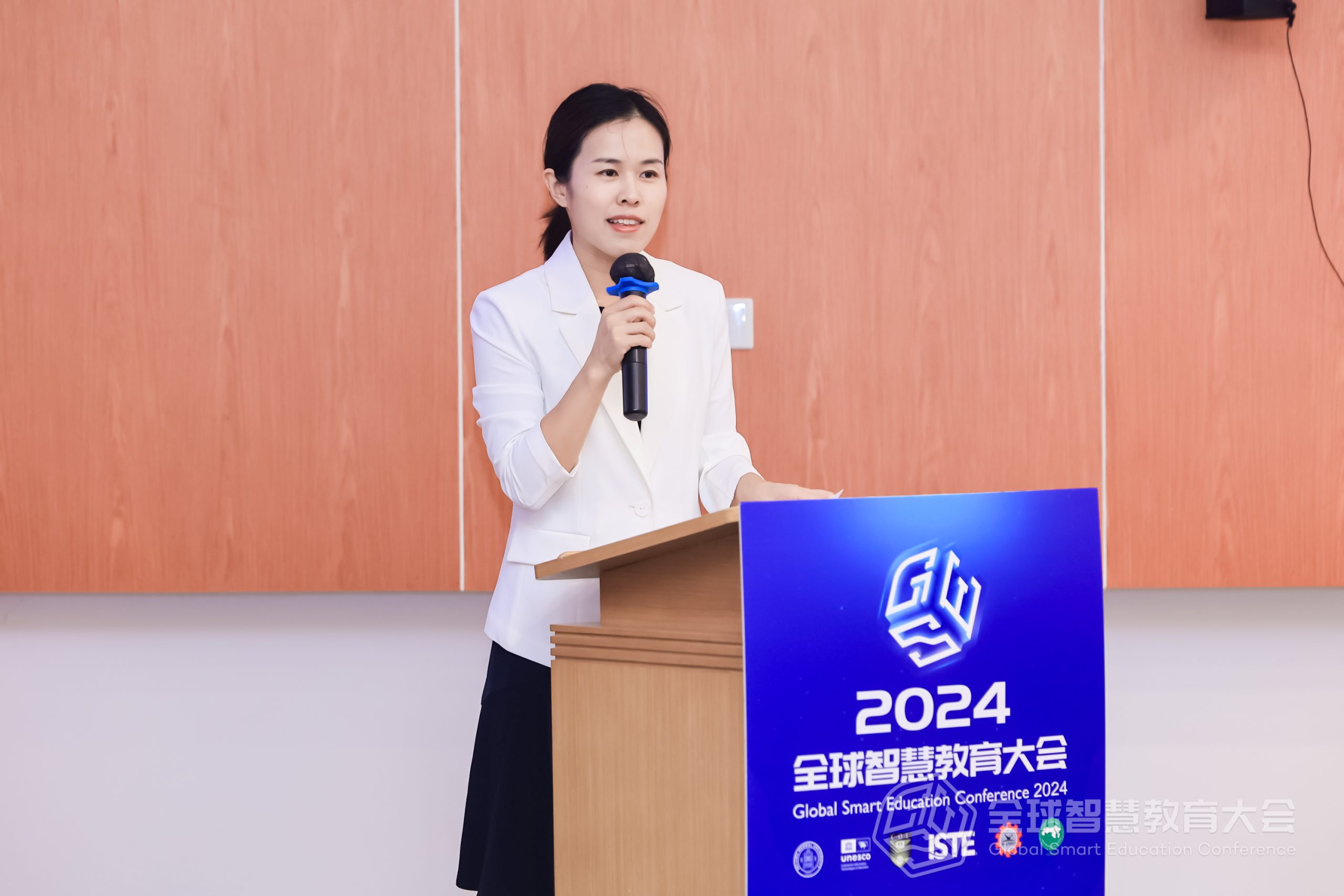
Guest: Ms. AN Lili, Deputy Secretary of Youth League Branch Committee, Beijing Normal University
Mr. Divine Edem Kwadzodeh proposed that technology should be leveraged to enhance teaching practices, innovate teaching design, and facilitate evidence-based governance, driving the sustainable development of education. He highlighted that AASU is dedicated to ensuring equitable access to educational resources in Africa and leading educational transformation in the digital age. He introduced a series of collaborative projects undertaken by AASU with variety of partners to promote the development of smart education platforms. Then, he encouraged the participants to consider the potential impacts of smart technologies on creating a more equitable and efficient learning environment for global learners.
-scaled.jpg)
Guest: Mr. Divine Edem Kwadzodeh, Policy Advisor on Education Policy and Advocacy, All-African Students Union (AASU)
How to design and implement ubiquitous smart learning spaces
In the future, ubiquitous smart learning spaces will enable learners to access necessary information anytime and anywhere, thereby promoting effective learning.
-scaled.jpg)
Moderator: Dr. Usama Kalim (Pakistan), Postdoctoral fellow, Beijing Normal University, China
Mr. Frederick Oduro, a Ph.D. student in Comparative Education at Beijing Normal University, pointed out that the existing disparity in educational resources is a key issue in the field of science education in Ghana, especially the severe lack of science labs and equipment, which significantly limits the implementation of practical science education. He proposed building ubiquitous learning spaces using virtual reality (VR), augmented reality (AR), and mobile learning devices to provide students with a flexible, immersive, and interactive learning environment.
-scaled.jpg)
Speaker: Mr. Frederick Oduro (Ghana), Ph.D. Student, Beijing Normal University, China
Ms. SHEN Peiqing, a postgraduate student in Education AI Research at Tokyo Gakugei University, noted that while AI technology is increasingly applied in the field of education, challenges persist, such as the high error rates of tools like ChatGPT in answering professional questions. She proposed using AIGC technology to create interactive intelligent learning companions, enhancing learning efficiency and quality through personalized guidance and real-time feedback while emphasizing the importance of multilingual communication and 24/7 availability.
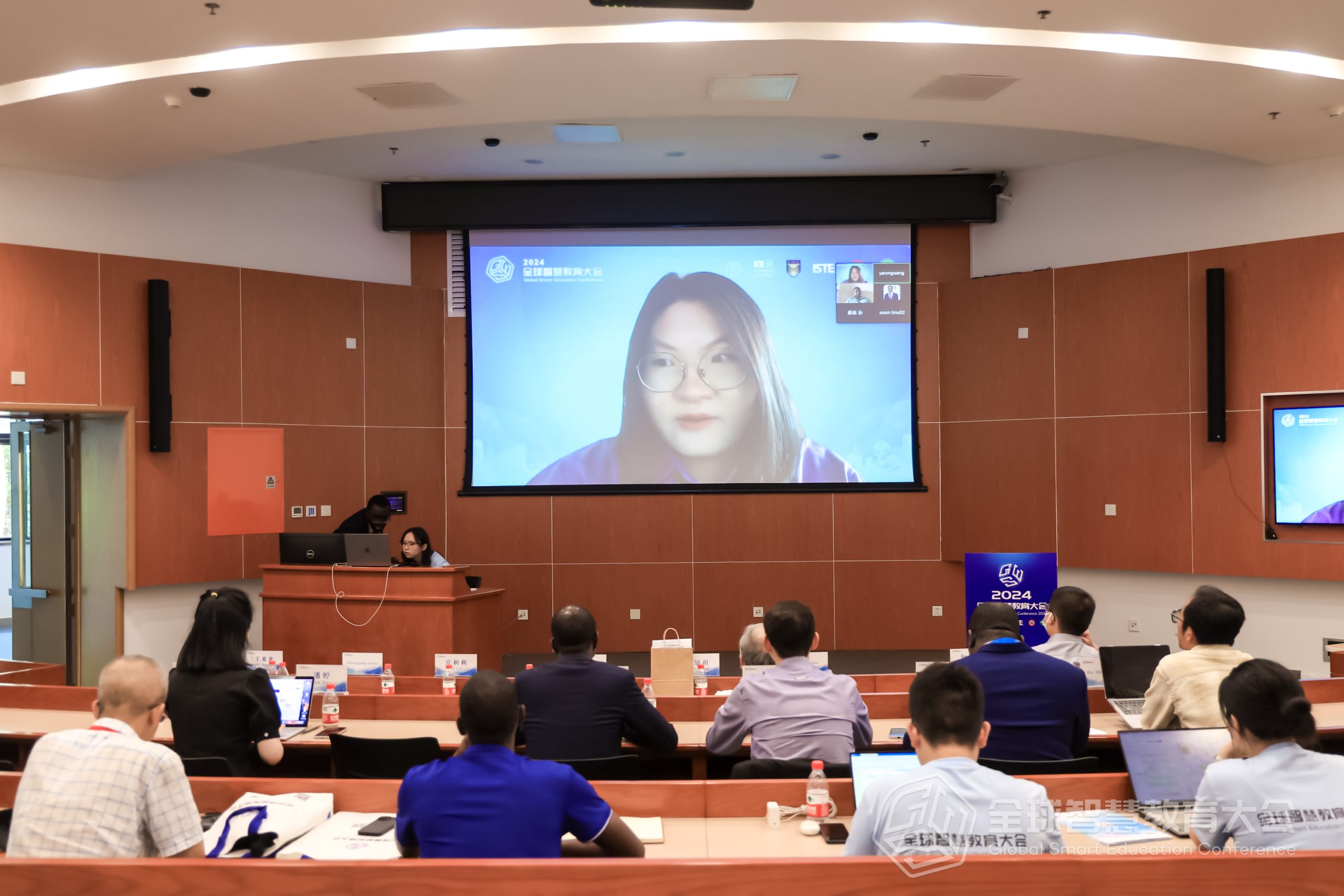
Speaker: Ms. SHEN Peiqing (China), Postgraduate Student, Tokyo Gakugei University, Japan
Mr. William Edusei-Mensah, a Ph.D. student in Educational Technology at Beijing Normal University, pointed out that Ghana and other African countries face bottlenecks in Information and Communication Technology (ICT) development in the fourth industrial revolution wave. He suggested actively promoting the Smart Africa project to enhance the accessibility of devices, networks, and deep integration of emerging technologies with Teacher Professional Development Programs to enhance teachers’ digital competence, and to globally build a technology-enhanced learning environment.
-scaled.jpg)
Speaker: Mr. William Edusei-Mensah (Ghana), Ph.D. Student, Beijing Normal University
How to design and supply high-quality educational resources
In the future, high-quality educational resources must be easily accessible and adaptable to individual, ensuring broad accessibility across diverse regions and cultural contexts.
-scaled.jpg)
Moderator: Mr. Michael Agyemang Adarkwah (Ghana), Research Associate, Friedrich Schiller University Jena, Germany
Ms. Sofija Matovic, a Ph.D. student at the Faculty of Education of University of Belgrade, pointed out the challenges in the Serbian educational system, such as lack of educational resources, insufficient teacher digital competence, and lack of necessary support, severely impeding the improvement of education quality and modernization processes. She proposed the ” Center for Robotics and Artificial Intelligence in Education (CRAIE)” framework aimed at overcoming various challenges in educational modernization by enhancing teacher digital literacy, optimizing student learning experiences, and integrating advanced educational tools and resources.
-scaled.jpeg)
Speaker: Ms. Sofija Matović (Serbia), Ph.D. Student, University of Belgrade, Serbia
Ms. Lee Gi Young, a postgraduate student in Public Administration & Social Entrepreneurship at Sungkyunkwan University, highlighted the severe challenges faced by Korean youth in career and character education. She proposed promoting the “MYOC” (Make Your Own Cube) project, which involves designing and implementing a series of diversified, multilevel self-exploration and character development courses to help young people achieve self-awareness, build confidence, and clarify their directions in a rapidly changing society. She emphasized the collective responsibility of educational transformation, especially the crucial role of communities, schools, and families in jointly designing and providing high-quality educational resources.
-scaled.jpeg)
Speaker: Ms. Lee Gi Young (South Korea), Postgraduate Student, Sungkyunkwan University, South Korea
Mr. Enoch Sarfo Gyimah, a postgraduate student in Science in Nursing at Valley View University, pointed out the ethical issues in AI learning systems in nursing education, particularly the need for the authenticity of evidence-based information for learning. He proposed selecting and integrating learning resources by expert reviews and AI-aided curation to ensure the quality and reliability of resources; monitoring and evaluating through user tracking and AI-aided analysis to increase transparency and data privacy in the educational process, thus ensuring the authenticity of learning outcomes in nursing education and providing robust support for learners’ clinical practice.
-scaled.jpeg)
Speaker: Mr. Enoch Sarfo Gyimah (Ghana), Postgraduate Student, Valley View University, Ghana
How to design innovative human-machine collaborative learning activities
In the future, learner-centered teaching will enhance creative problem-solving skills through the development of social learning communities and human-machine collaboration.
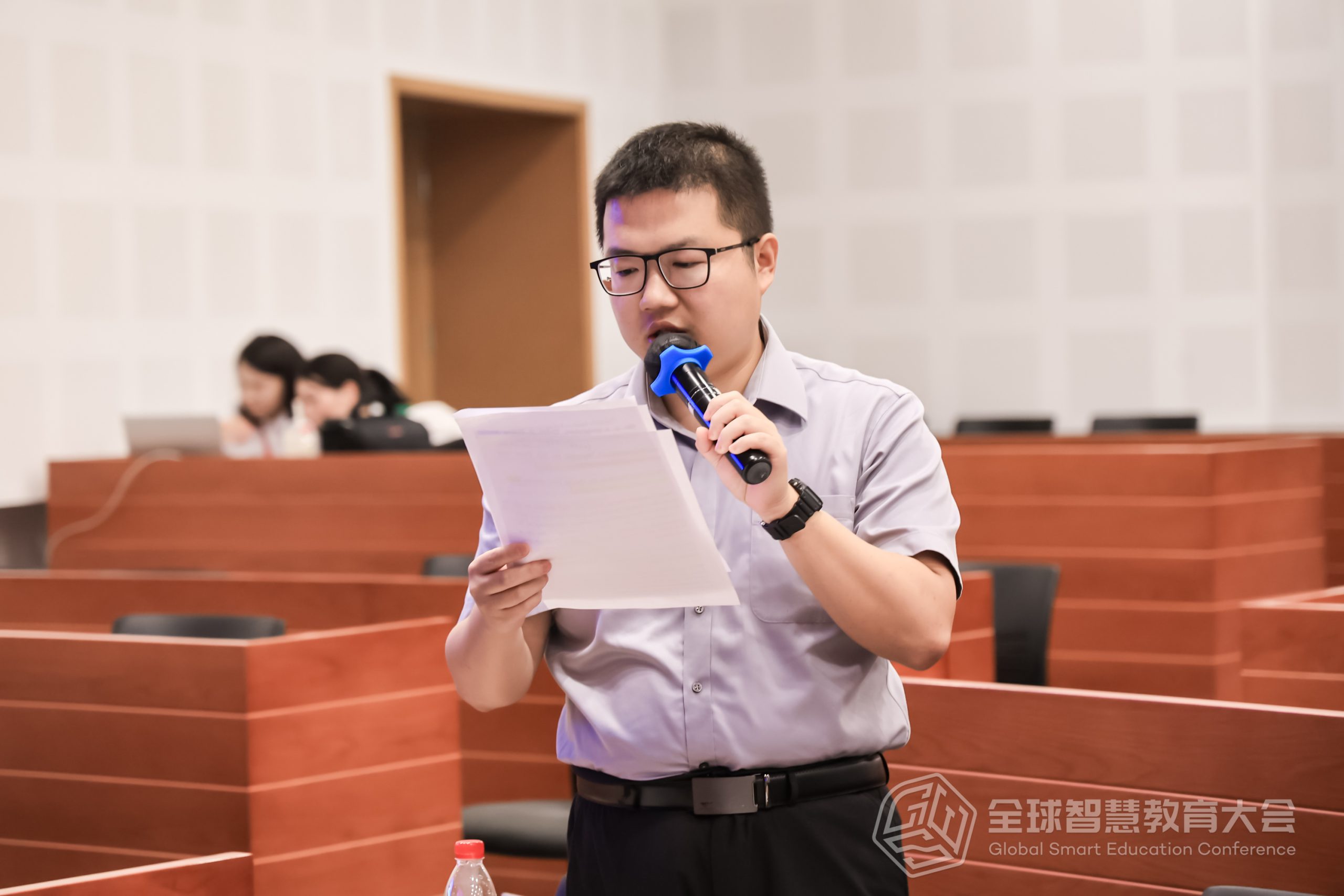
Moderator: Mr. BAO Haogang, Assistant Researcher, China National Academy of Educational Sciences (CNAES), China
Ms. Samaneh Lahuti, a postgraduate student in Educational Technology at Beijing Normal University, pointed out that although students widely use generative AI tools to complete assignments and semester projects in higher education, many university teachers still do not fully grasp how to design learning activities to enhance students’ human-machine collaboration skills. She suggested universities provide clear guidance to teachers to better integrate AI into classroom teaching, ensuring the effective integration of technology and education.
-scaled.jpeg)
Speaker: Ms. Samaneh Lahuti (Iran), Postgraduate Student, Beijing Normal University, China
Ms. Martina Kolar, an undergraduate student in IT Design at Zagreb University of Applied Sciences, emphasized that inadequate teacher preparation and lack of effective assessment data and tools significantly affect the quality of education in Croatia. She advocated enhancing the learning experience through gamification, utilizing generative AI technology for personalized customization, dynamic difficulty adjustment, and intelligent assessments to cater to different learning styles.
-scaled.jpeg)
Speaker: Ms. Martina Kolar (Croatia), Undergraduate Student, Zagreb University of Applied Sciences, Croatia
Mr. SUN Chendong, a postgraduate student in Product Design Research at China Academy of Art, pointed out the difficulties faced by deaf dancers in traditional dance learning, such as dysrhythmia, low communication efficiency, and great psychological pressure. He and his team developed the “CoDance” project, where hearing disorder can better grasp rhythm with the beats generated by the vibration of the patch, facilitating dance learning anytime, anywhere. The project aims to create an inclusive dance learning space, bridging the music perception gap between the hearing impaired and hearing dancers.
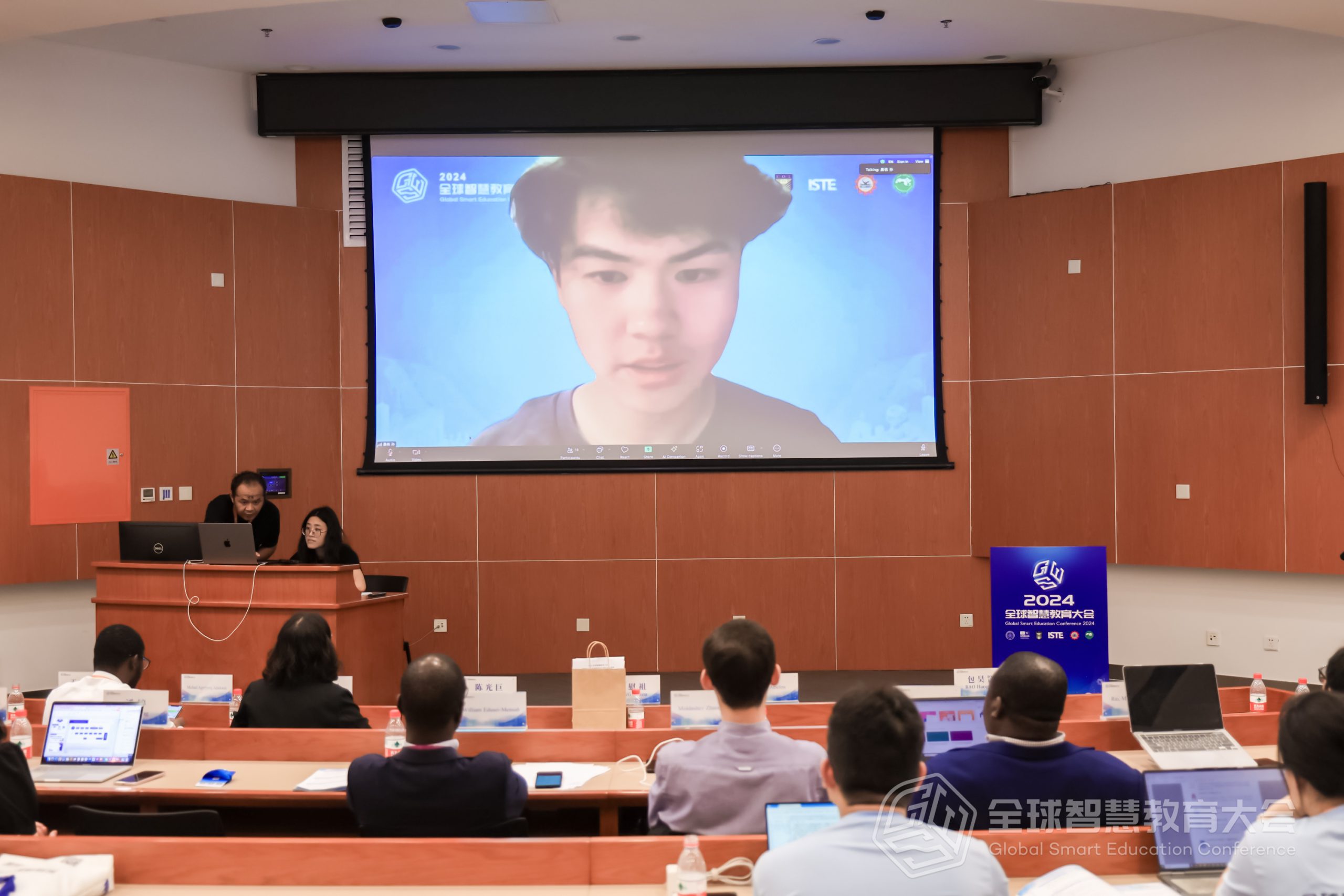
Speaker: Mr. SUN Chendong (China), Postgraduate Student, China Academy of Art, China
Mr. Yoosuf Sayyid Bin Ahmed Shafeeg, a postgraduate student in Business Administration with Specialism in Digital Leadership at Asia Pacific University, pointed out that excessive reliance on AI tools to complete tasks may weaken learners’ critical thinking skills. He proposed using AI to promote collaborative and creative learning by designing personalized learning projects, combining diverse student interests and skills to reshape the education model in a dynamically collaborative learning environment.

Speaker: Mr. Yoosuf Sayyid Bin Ahmed Shafeeg (Maldives), Postgraduate Student, Asia Pacific University, Malaysia
How to design and implement teaching models with multi-stakeholder participation
In the future, teaching models with multi-stakeholder participation will position teachers as conveners, engaging local leaders, community workers, expert advisors, and enterprises in collaborative efforts to support collective teaching and resource sharing.
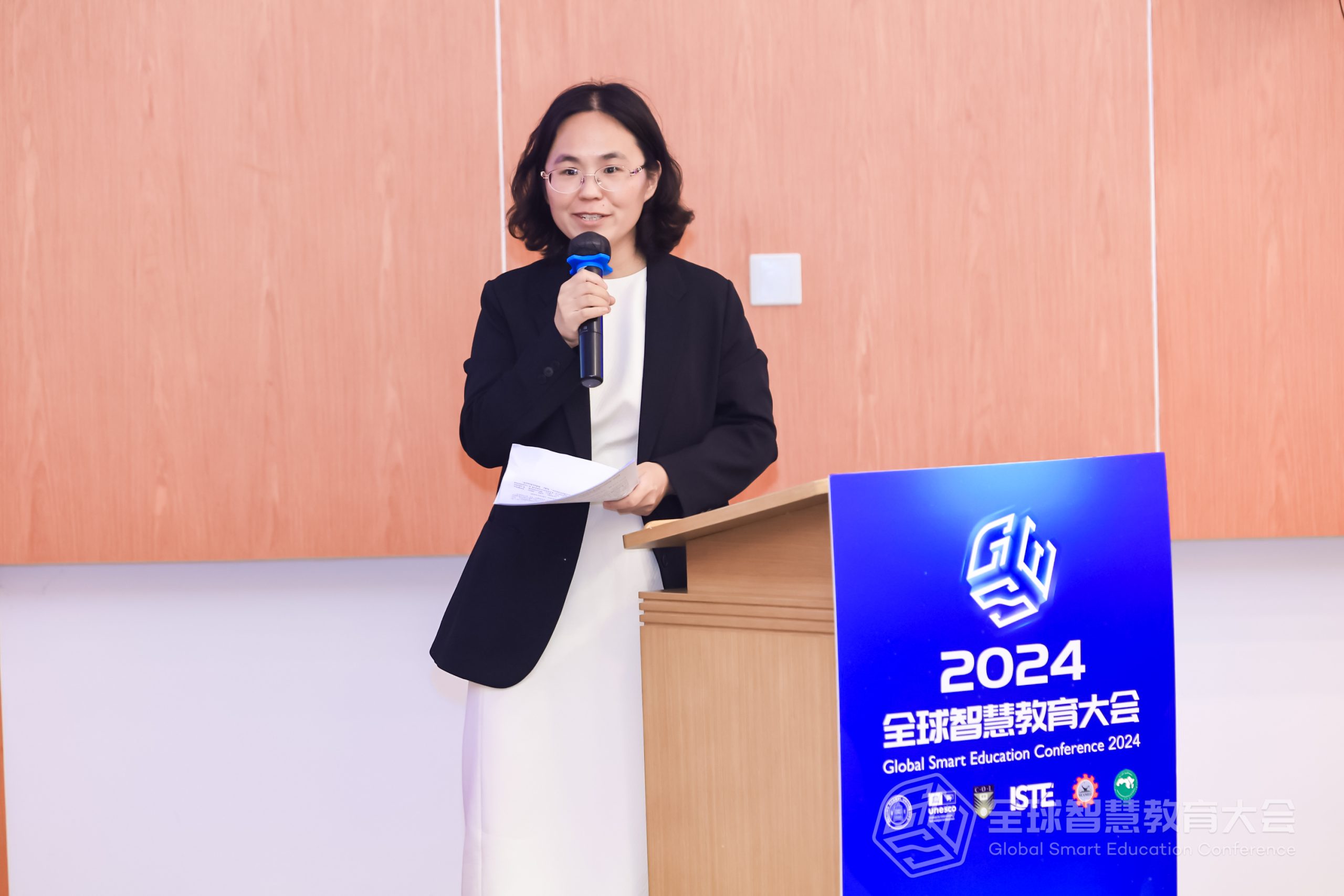
Moderator: Ms. WANG Huanhuan, Assistant Researcher, Beijing Normal University
Mr. Rai, Mahesh Chandra, a Ph.D. student in Teacher Education at Beijing Normal University, highlighted challenges in the educational system in Nepal such as lack of practical opportunities and shortage of well-trained teachers. He proposed an effective multi-stakeholder participative teaching model to address the complex educational needs of Nepal by involving policymakers, school administrators, teachers, students, parents, and the broader community to support and facilitate the transfer of teacher training to classroom practices.
-scaled.jpeg)
Speaker: Mr. Rai, Mahesh Chandra (Nepal), Ph.D. Student, Beijing Normal University, China
Ms. LIU Yuhuan, a postgraduate student in Digital Education at Xi’an Jiaotong-Liverpool University, pointed out the issue of fragmentation in medical education, where medical students face a gap between learning resources and clinical practice, lacking in-depth practical training periods. She suggested building the “Hellodoc” AI-powered medical education platform, integrating authoritative learning resources with virtual patient simulations to offer comprehensive knowledge and practical training, encouraging continuous improvement of the educational system through a data feedback mechanism.
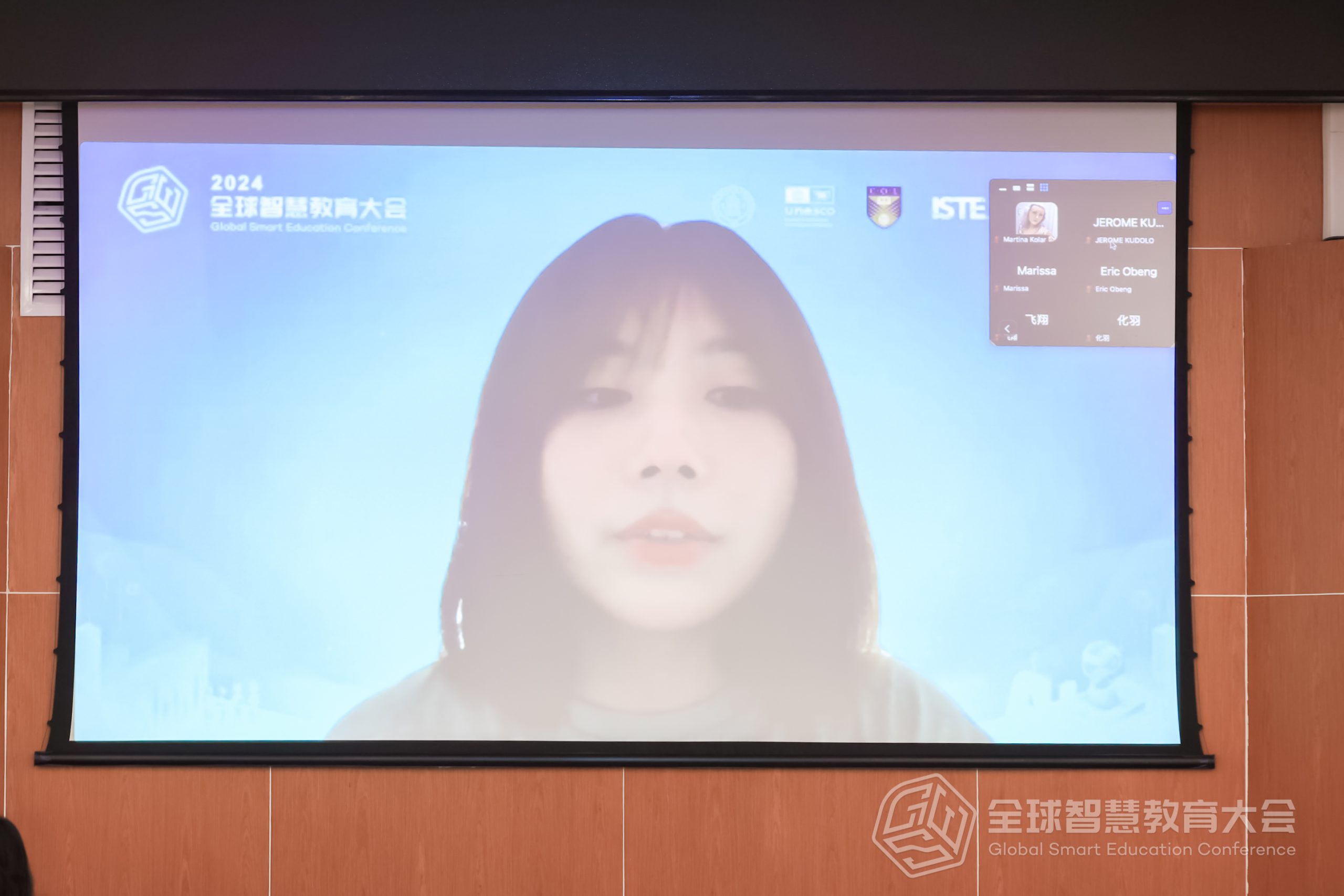
Speaker: Ms. LIU Yuhuan (China), Postgraduate Student, Xi’an Jiaotong-Liverpool University, China
Mr. Moldashev Zhandarbek, a Ph.D. student in Pedagogy at Beijing Institute of Technology, discussed the future roles of AI as a new stakeholder and its potential impact on the educational system. He proposed leveraging AI technology in the digital intelligent era, combining the participation of government, companies, schools, and students to build an adaptive higher educational system to address challenges such as educational equity, personalized learning, and quality enhancement.
-scaled.jpeg)
Speaker: Mr. Moldashev Zhandarbek (Kazakhstan), Ph.D. Student, Beijing Institute of Technology, China
Ms. PAN Ting, a postgraduate student in Learning Sciences at Northwestern University, focused on promoting Project-based Learning (PBL) practices and the involvement of multi-stakeholder. She suggested optimizing the curriculum system, performance assessment, and educational objectives by integrating educational technology tools, designing student-centered, Understanding by Design (UbD) curricula, and involving teachers, students, parents, entrepreneurs, and researchers to drive educational transformation and enhance the literacy of all students across the school.
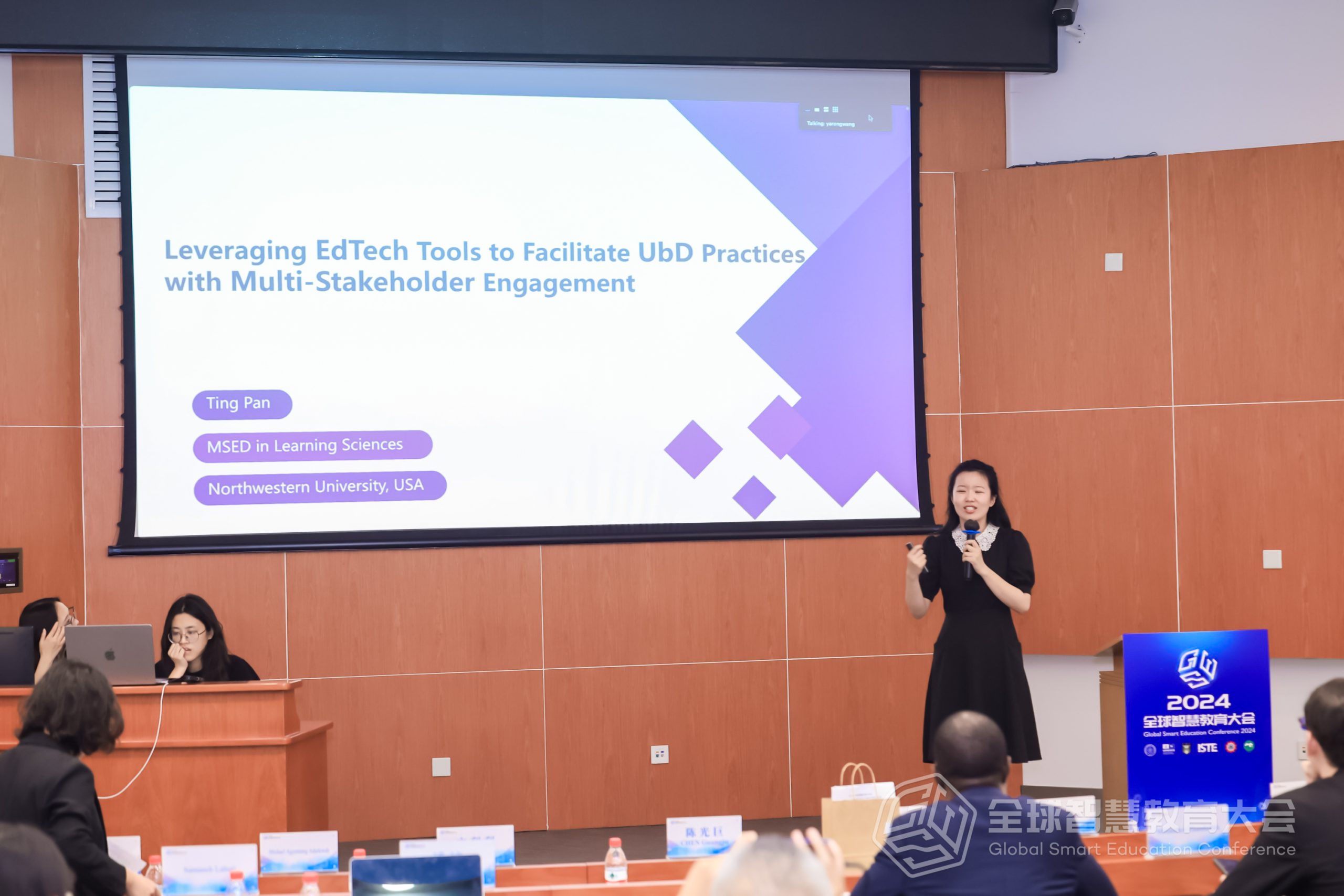
Speaker: Ms. PAN Ting (China), Postgraduate Student, Northwestern University, America
Roundtable Discussion
A roundtable discussion on “Artificial Intelligence Generated Content (AIGC) and its Deep Integration with Education” was hosted by Michael Agyemang Adarkwah. The discussion extensively explored the multiple potentials and challenges of AIGC in the field of education, with participants contributing their insightful perspectives.
Ms. Martina Kolar emphasized that organizational skills and strategic planning are key to designing efficient AIGC prompts, highlighting the importance of independent thinking in building core concepts.
Mr. William Edusei-Mensah elaborated on the potential of AIGC in enhancing educational personalization and accessibility, suggesting that AI can dynamically adjust content based on students’ learning abilities to provide customized learning experiences for all learners, including those with cognitive impairments.
Mr. Moldashev Zhandarbek noted that AIGC can effectively alleviate the shortage of books in resource-limited educational areas, ensuring that every student can access high-quality resources.
Mr. Frederick Oduro discussed the application value of AIGC throughout the various stages of teaching practice, from pre-class preparation to teaching processes and exercise consolidation, including assisting teachers in lesson planning, preparing teaching materials, providing real-time feedback and interactive content, generating personalized practice questions, and simulated scenarios.